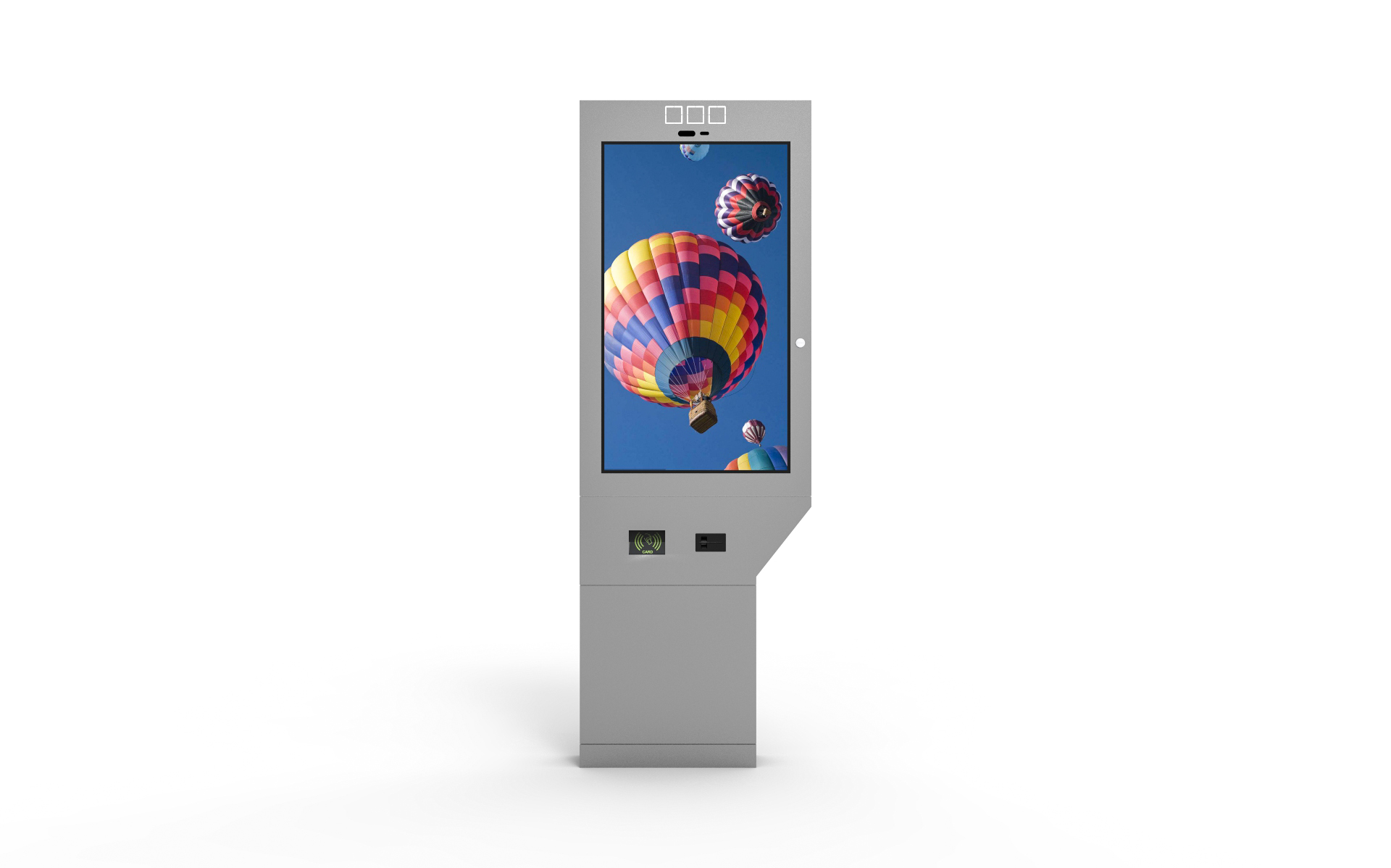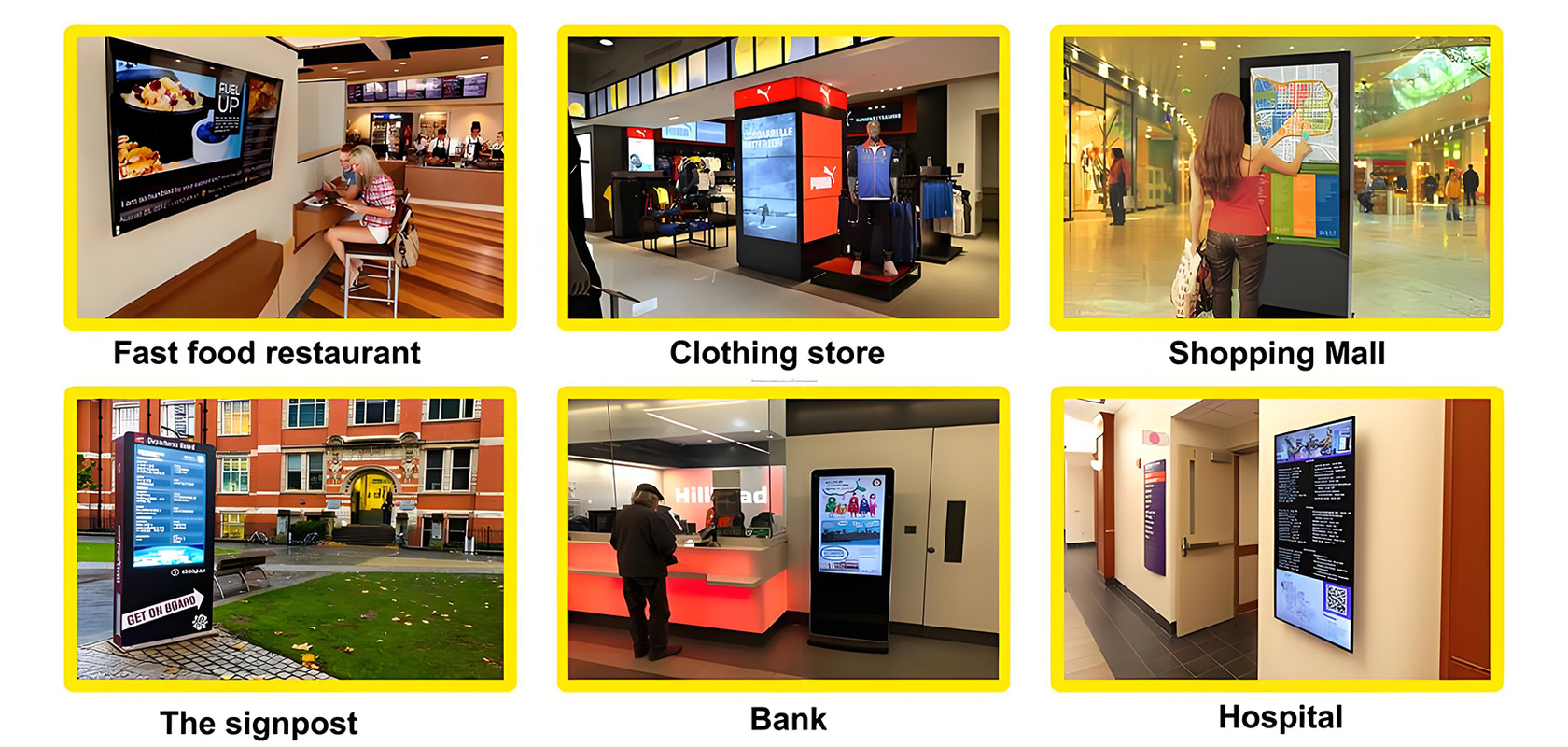Digital Signage for Hotels: Elevating Guest Experience
Digital Signage for Hotels: Elevating Guest Experience.In the rapidly evolving landscape of the hospitality industry, hotels are continually seeking innovative ways to enhance guest experiences and streamline operations. One technology that has gained significant momentum in recent years is digital signage. This versatile medium offers hotels a dynamic platform to communicate with guests, provide essential information, and create immersive environments that leave a lasting impression. By leveraging digital signage, hotels can not only elevate the guest experience but also differentiate themselves in a competitive market.

The Evolution of Hotel Communication
Traditionally, hotels relied on static signage such as printed posters, brochures, and directional signs to convey information to guests. While these methods were functional, they lacked the flexibility and interactivity that modern travelers now expect. The advent of digital signage has revolutionized how hotels communicate, enabling them to deliver content that is both engaging and informative.
Digital signage refers to electronic displays that show digital images, videos, and other multimedia content. These displays can be found in various formats, including LCD, LED, and projection screens, and can be strategically placed throughout a hotel—from lobbies and elevators to guest rooms and conference centers.
Enhancing the Guest Experience
One of the primary benefits of digital signage in hotels is its ability to enhance the overall guest experience. Here are some key ways in which digital signage achieves this:
Welcome and Information Displays
Upon arrival, guests are often greeted by digital welcome screens that display a warm message along with essential information such as check-in procedures, hotel amenities, and nearby attractions. These displays can be customized to reflect the hotel's brand and create a positive first impression.
For instance, a luxury hotel might use high-definition displays with elegant animations to showcase its premium services, while a boutique hotel might opt for a more quirky and personalized approach. This immediate engagement sets the tone for the guest's stay and makes them feel valued.
Wayfinding and Directional Signs
Navigating a large hotel can be daunting, especially for first-time visitors. Digital signage can simplify this process by providing clear and intuitive wayfinding solutions. Interactive maps and touchscreens allow guests to find their way to restaurants, meeting rooms, fitness centers, and other facilities with ease.
Moreover, these systems can be updated in real-time to reflect any changes in the hotel's layout or services, ensuring that guests always have access to the most accurate information.
Promoting Hotel Services and Amenities
Digital signage offers a powerful platform for hotels to promote their services and amenities. Whether it's advertising the spa's latest treatment, showcasing the menu at the hotel restaurant, or highlighting special events, digital displays can capture guests' attention and encourage them to take advantage of what the hotel offers.
By using eye-catching visuals and engaging content, hotels can increase guest engagement and ultimately boost revenue from ancillary services.
Entertainment and Ambiance
Digital signage can also be used to create a captivating ambiance within the hotel. For example, large-scale video walls in lobbies or lounges can display stunning visuals, artwork, or even live feeds from local events, adding a touch of sophistication and excitement to the space.
In guest rooms, digital signage can replace traditional television sets, offering guests a more personalized entertainment experience. With streaming services and on-demand content, guests can enjoy their favorite shows and movies on a high-quality screen.
Personalization and Customization
One of the most significant advantages of digital signage is its ability to deliver personalized content. By integrating with hotel management systems, digital displays can show guest-specific information such as welcome messages, room service orders, and event reminders.
This level of customization not only enhances the guest experience but also fosters a sense of loyalty and connection to the hotel brand. Guests appreciate being recognized and catered to, and digital signage plays a crucial role in achieving this.
Operational Efficiencies
Beyond enhancing the guest experience, digital signage also offers several operational benefits for hotels:
Centralized Content Management
With digital signage, hotels can manage content from a centralized platform. This means that updates and changes can be made quickly and easily, without the need for printing and distributing new materials. This not only saves time and resources but also ensures consistency across all displays.
Remote Monitoring and Maintenance
Digital signage systems can be remotely monitored for performance and maintenance. Hotel staff can quickly identify and resolve any issues, ensuring that displays are always functioning optimally. This reduces downtime and minimizes disruption to the guest experience.
Data Analytics and Insights
Digital signage platforms often come with analytics tools that provide valuable insights into guest behavior and preferences. By tracking engagement with different types of content, hotels can gain a deeper understanding of what resonates with their guests and adjust their strategies accordingly.
For example, if data shows that guests are particularly interested in fitness-related content, the hotel can allocate more screen time to promoting its fitness facilities and services.
Challenges and Considerations
While digital signage offers numerous benefits, it's important for hotels to consider the potential challenges and limitations. Here are some key factors to keep in mind:
Cost and Investment
Implementing a digital signage system requires an initial investment in hardware, software, and installation. Hotels need to carefully evaluate the cost-benefit ratio and ensure that the investment aligns with their long-term goals.
Additionally, ongoing maintenance and content creation should be factored into the budget to ensure the system remains effective and engaging.
Content Creation and Management
Creating compelling content for digital signage requires creativity and expertise. Hotels may need to hire or train staff to manage content creation and ensure that it aligns with the hotel's brand and messaging.
It's also important to regularly update content to keep it fresh and engaging. A stale or outdated display can have the opposite effect, detracting from the guest experience.
Guest Privacy and Security
As digital signage becomes more interactive and personalized, hotels must ensure that guest privacy and security are not compromised. Data collection and usage policies should be clearly communicated to guests, and appropriate measures should be taken to protect sensitive information.
Integration with Existing Systems
Digital signage should seamlessly integrate with the hotel's existing systems, such as property management systems (PMS) and customer relationship management (CRM) software. This ensures that guest data is accurately reflected on displays and that communication is consistent across all touchpoints.
Conclusion
Digital signage has become a vital tool for hotels seeking to elevate the guest experience and streamline operations. By leveraging the power of dynamic displays, hotels can engage with guests in meaningful ways, provide essential information, and create immersive environments that foster loyalty and satisfaction.
From welcome screens and wayfinding signs to personalized entertainment and promotional content, digital signage offers endless possibilities for enhancing the hotel experience. However, it's important for hotels to carefully consider the costs, challenges, and integration requirements before implementing a digital signage system.
Ultimately, with the right strategy and execution, digital signage can transform a hotel's communication landscape, setting it apart in a competitive market and delivering memorable experiences that guests will cherish. As technology continues to evolve, the potential for digital signage in hotels is limitless, and the future of guest experience is undoubtedly digital.
Application scenarios of digital signage

Tags:
self service kiosk touch kiosk digital signage interactive display interactive touch whiteboard kiosk video wall wall outdoor kiosk IP68 IP67 screen Shopping MallCurrent article link:
https://www.lcdkiosk.com/news/127.html







